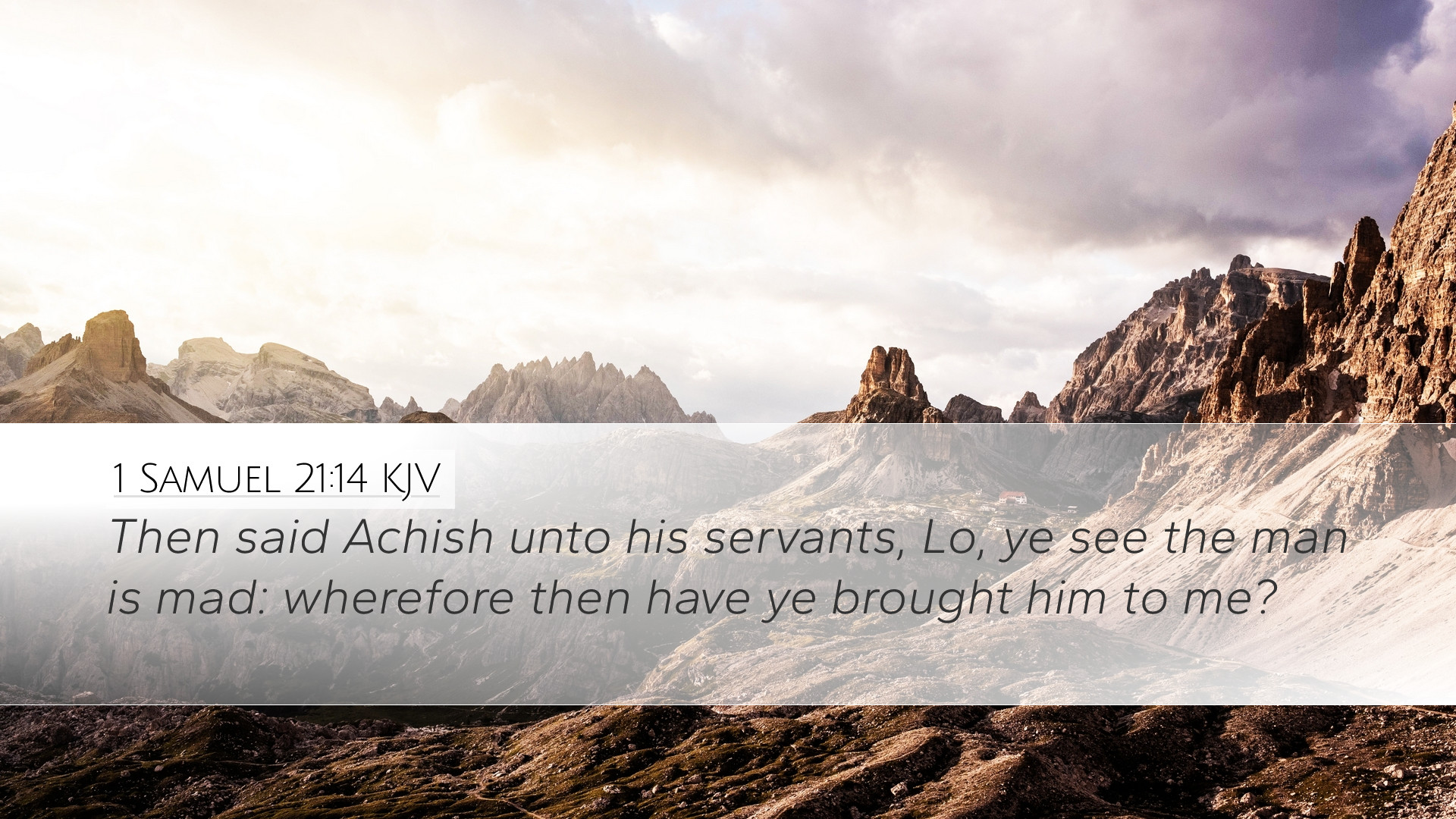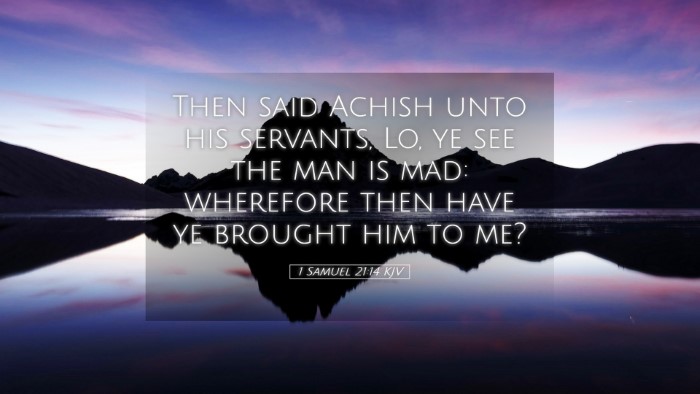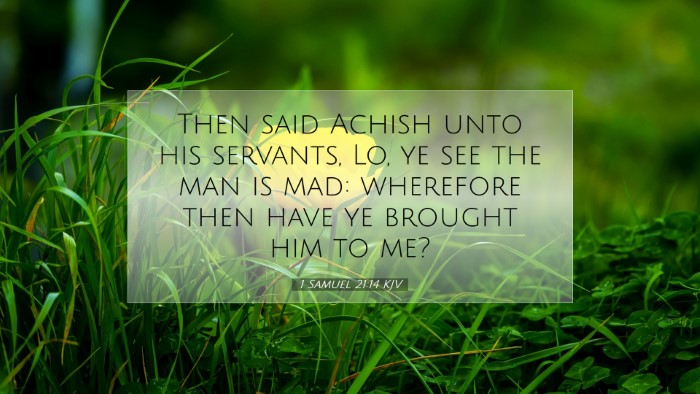Commentary on 1 Samuel 21:14
Verse Context: 1 Samuel 21:14 states, "Then said Achish unto his servants, Lo, ye see the man is mad: wherefore then have ye brought him to me?" This verse occurs in the narrative of David fleeing from Saul and seeking refuge among the Philistines.
Introduction
The passage of 1 Samuel 21:14 raises significant insights into the nature of David's crisis, the perception of madness as a strategy, and the overarching providence of God in moments of peril. Commentators such as Matthew Henry, Albert Barnes, and Adam Clarke provide valuable perspectives that are instrumental for deeper theological reflection.
Analysis of Achish's Reaction
Matthew Henry: Henry emphasizes Achish's interpretation of David's behavior. He sees David’s feigned madness as a potential safeguard for the future king of Israel. David, desperate for survival, chose to act like a madman to escape the impending danger from Saul. Henry reflects on how this act displays both cunning and desperation. Achish, recognizing David's apparent madness, suggests a mixture of both pity and disdain, noting the wisdom of not involving himself with such a 'mad' man.
Albert Barnes: Barnes elaborates on the implications of Achish's assessment. He presents the notion that Achish’s decision to dismiss David mirrors the broader theme of God’s protection over David’s life, despite the unfavorable circumstances. Moreover, the reference to madness indicates that Achish did not perceive David as a threat, thereby inadvertently allowing David to escape further scrutiny. Barnes points out how God often uses unconventional methods to provide for His people—here, madness becomes a means of deliverance.
Adam Clarke: Clarke provides historical context regarding the Philistine king Achish. He explains that Achish likely had previous dealings with David and initially viewed him favorably as a warrior. However, upon realizing David’s precarious state, Achish dismisses him as a madman—an action that reflects the tension in political alliances during this troubled time. Clarke's perspective reminds us that God’s providence sometimes appears through the misinterpretations of others, showcasing divine irony at work in David’s life.
Theological Implications
This verse serves as a profound reflection on fear, identity, and the lengths to which individuals may go to preserve their lives. It encapsulates several critical theological themes:
- God's Sovereignty: The encounter demonstrates that even in dire circumstances, God's sovereign plan prevails. David's pretense of madness is a testament to how God can maneuver situations to achieve His intended ends.
- The Role of Fear: David's actions reflect the human tendency to respond to fear with drastic measures. Here, one sees the tension between faith and fear, as David, although a man after God’s own heart, resorts to deception for survival.
- Human Perception of Madness: Achish’s labeling of David as mad serves as a commentary on how society often misjudges the behavior of others, especially those who are desperate or in trouble. This invites readers to consider how we perceive and treat those who find themselves in desperate situations.
- Divine Protection: The narrative underscores a primary biblical theme: God’s protection over His chosen. David’s escape through the pretense of madness emphasizes that God can use even foolishness to preserve His anointed.
Application for Pastors and Theologians
For pastors and educators, 1 Samuel 21:14 offers salient lessons in pastoral care and the understanding of divine providence. It urges leaders to reflect on the depths of human despair encountered in their ministries and the varied ways individuals respond to their crises.
The text reminds pastors to approach individuals in distress with compassion, recognizing their complex motivations. Moreover, it calls for a deep theological engagement with the notion of madness—not solely as a psychological state but as a metaphor for the state of the human soul estranged from God. Pastors can cultivate environments where authenticity is embraced, allowing congregants to express their struggles without judgment.
Conclusion
In conclusion, 1 Samuel 21:14 invites a deep examination of the interplay between faith, fear, and the provocative acts individuals may undertake when faced with existential threats. The commentary from Henry, Barnes, and Clarke collectively highlights the providential hand of God operating through the mundane details of life. As such, this verse remains a powerful testament to the complexities of human experience and divine governance, resonating with scholars and practitioners alike.


